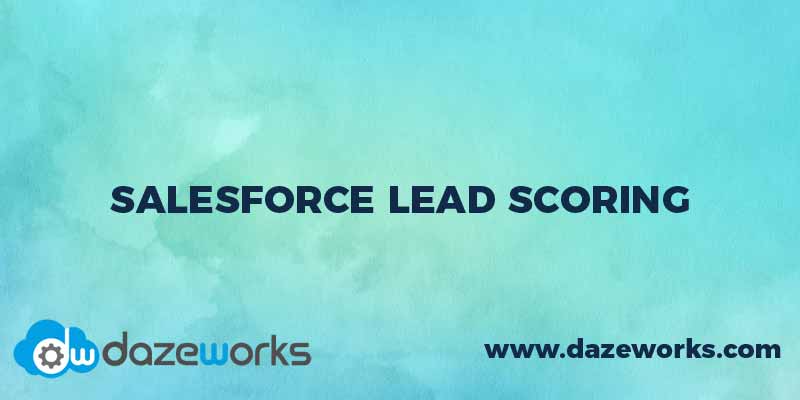
Salesforce Lead Scoring
minutes read
Salesforce Lead scoring is a compelling model that enables sales and marketing departments identify which prospects are potentially most valuable to the company and its current sales funnel. A lead scoring system only works when it is perfectly set up and used on a regular basis. Otherwise, it runs the risk of being a waste of marketing and sales’ time and resources.
Proper lead scoring will tell you when it’s time to reach out, ensuring a streamlined lead flow, efficient Salesforce lead management and increased sales effectiveness. In other words, lead scoring can keep you from wasting your time and money on leads who are currently not ready to make a purchase.
Salesforce is a perfect place to do lead qualification and scoring as it is typically the system of record and where all lead, contact, and account information lives. Building a lead scoring process in Salesforce offers two key advantages:
- Enriched data with demographic attributes can be easily added.
- All recorded sales activity can be used within your scoring formulas.
Why lead scoring is required?
- To filter quality of leads.
- Maximum chance to convert into opportunity & deal.
- Clear idea about your lead quality.
Steps to setup Lead scoring.
- Make a list of your requirements for qualification process of a lead.
- Define Lead Scoring section in Lead layout.
- Define Scoring for your requirements fields. ( e.g. 5 points, 10 points, 15 points etc.)
- Select image which you want to display in lead scoring.
Significance
Many lead scoring frameworks assign point values to various activities a lead or client can take in the sales channel. When a lead reaches a specific point total, they are considered a hot prospect. Knowing when to reach out to a lead can help salespeople stay on track, focus their attention on the right group of potential customers, and be more productive.
Sales and marketing teams can better judge how close a prospect or customer is to making a purchase with lead scoring. By looking at where the lead is in the sales funnel, workers can organize their chance and assets. This enables sales to center around clients who are going to conclude a deal, which may prompt higher conversion or close rate.
Lead scoring makes sales more efficient by focusing on the most promising leads first. It helps align sales and marketing by clearly delineating which leads marketing owns and which leads sales owns based on lead priority.
It’s important to note you do not have to include all of your data in your lead scoring. It is often best to start with a basic lead scoring model and then build over time as you define your Ideal Customer Profile (ICP) and understand what activities predict conversions.
When starting, demographic and firmographic data can form the base of your model. Who your lead is (and what company they work for), is very often more important than what actions they are taking on your site or within your app. This seems to be especially true in the B2B SaaS market.
Predictive Lead Scoring with Einstein
Nailing down a steady lead scoring formula is a tricky process that often results in a careful ‘try and check’ process with manual audit and re-evaluation of your lead scoring criteria. What’s more, this is the place predictive lead scoring becomes an integral factor and demonstrates its excellence. Using predictive lead scoring powered by artificial intelligence (AI) and machine learning (ML), marketing managers don’t have to figure out what criteria should be included in a lead scoring formula or how much weight to assign for each property − the system does all the research and calculations automatically. Thus, sales and marketing managers can eliminate constant scoring formula reviews, decrease the number of evaluation inaccuracies and save up their time for other primary activities.
To make all these benefits available to users, Salesforce introduced Einstein AI, an add-on component that represents a predictive lead scoring approach. Einstein lead scoring uses the existing fields on the lead record to find data points that have been responsible for the lead’s conversion. Then, the engine automatically adopts the best model to score leads. A correlation between new lead attributes and those of historical leads defines a lead score in Salesforce Einstein. So, the higher the score, the more likely a lead will convert into an opportunity.
Do you have any queries related to Salesforce? Reach out to our team and we’d love to talk!!
